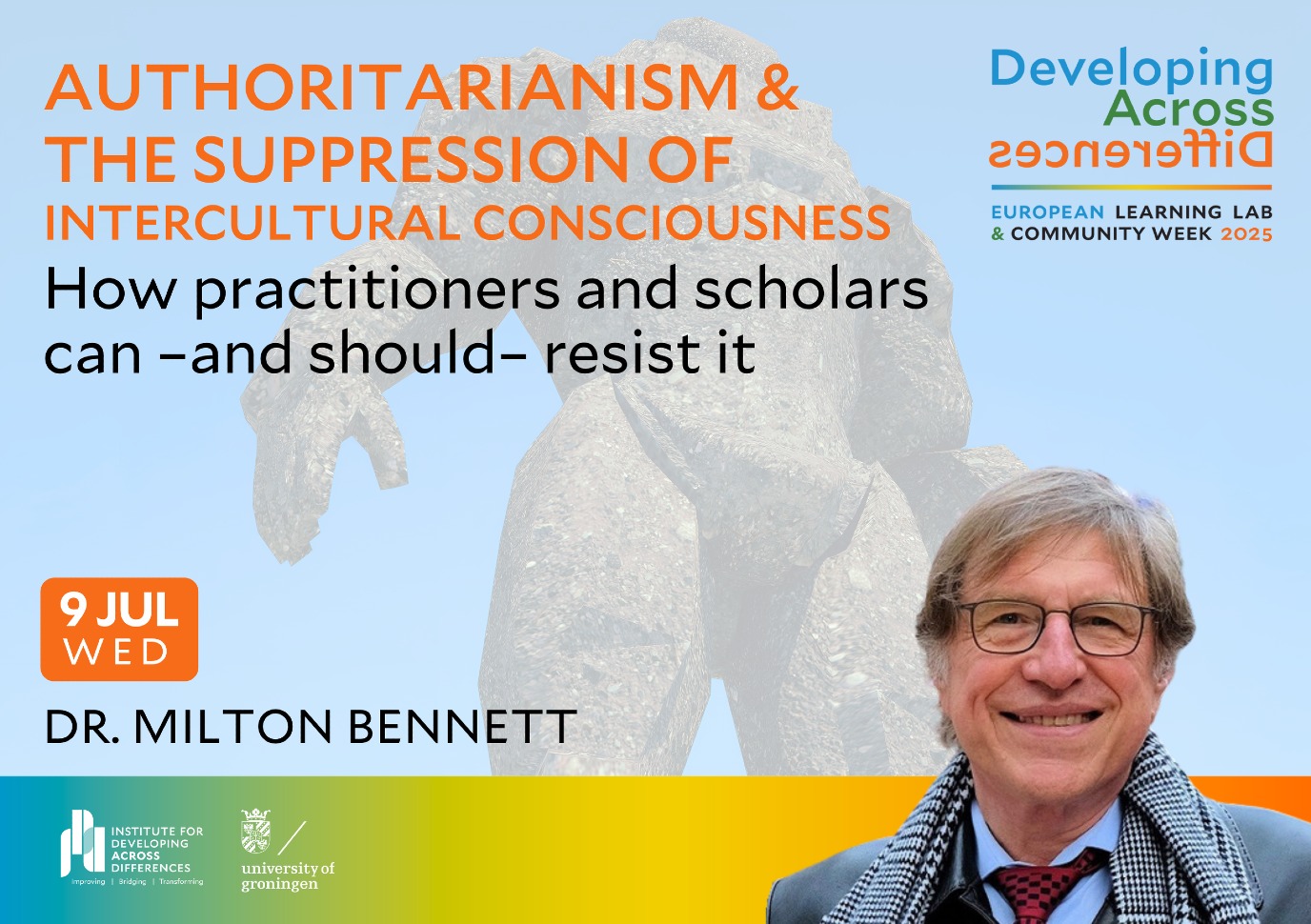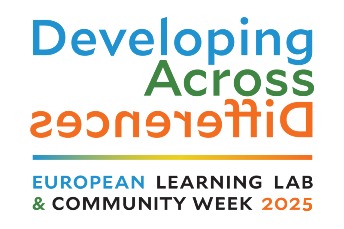Developing Across Differences: Authoritarianism & the Suppression of Intercultural Consciousness

Authoritarianism is a pre-conscious form of social organization — it demands obedience and prohibits agency. By exalting tribal “Us”-ness and denigrating Otherness, authoritarian leaders seek to suppress the self-consciousness that generates both personal agency and intercultural awareness. Authoritarians thereby fulfill their egocentric vision of Others being extensions of themselves, free only to parrot the leader’s words and thoughts.
Intercultural consciousness is the antithesis of this vision, because it recognizes Others as equally human but complexly different beings with their own words and thoughts.
Why should you attend?
Intercultural practitioners (trainers, facilitators, consultants, coaches) and academic / scholars of intercultural communication are in a unique position to combine their professional work with explicit and implicit resistance to authoritarianism.
In situations of relatively free speech, intercultural communication can be presented explicitly as theory and practice that encourages critical thinking and meta-level consciousness of Self / Other relations. But even if speech is constrained by some political or commercial circumstance, training or education in intercultural communication (IC) can nevertheless carry the implicit need for consciousness of Self / Other relations as a criterion of intercultural competence and a prerequisite for intercultural communication effectiveness.
Learn how in this timely new course.
Practical information
|
Dates
|
9 July 2025
|
|
Location
|
Academy Building (Broerstraat 5) or Harmonie Building (Oude Kijk in Het Jatstraat 26)
|
|
Level
|
PhD/Postdoc/Practitioners May be appropriate for some MA students; contact the organisers for consultation about eligibility |
|
Fees
|
€ 615 includes course and materials, optional evening programming |
|
Academic coordinators
|
Dr. Milton Bennett |
|
Contact |
ic rug.nl or info iddifferences.org |
Requirements
This course is for you if are:
-
An intermediate-level practitioner (trainer, facilitator, consultant, coach) who designs and delivers intercultural training / learning in either domestic multicultural or global intercultural contexts.
-
An academic / scholar working in intercultural communication and related fields who wishes to explore an updated communication-based alternative to various cultural comparison schemes often used for research and curriculum design in education, social service, and business contexts.
Contact the organisers at ic rug.nlor info iddifferences.orgif you have questions about the suitability of this course for your circumstances.
Level requirements
The DAD is for multipliers who help individuals, organizations and societies better recognize, appreciate and use differences as a way of better communicating, working and thriving together.
These are (in-house and external) trainers, educators, consultants, coaches, researchers, scholars, facilitators, HR staff, advanced-level (MA+) students, and professional development specialists with 5+ years of experience/study in the greater Differences field. Contact the organisers at ic rug.nl or info iddifferences.org for consultation about appropriateness and eligibility.
It is expected that the participants have a sufficient command of the English language to actively participate in the discussions and to present their own work in English.
Course schedule
Sunday, 6 July
15.00-18.00 Optional networking event
Wednesday, 9 July
09.00-17.30
Learning approach
This course format is one that uses conceptual inputs, discussion, and peer sharing.
Learning outcomes
In this course, you will learn how to help yourself and those you work with so that you/they can better:
-
Understand authoritarianism in terms of culture and consciousness.
-
Consider intercultural work as a form of critical consciousness development.
-
Construct explicit and implicit techniques to make your intercultural practice a form of anti-authoritarianism.
Workload
6 hours of in-class learning and active participation using experiential methods.
Upon successful completion of the programme, the Summer School offers a Certificate of Attendance that mentions the workload of 6 hours (28 hours corresponds to 1 ECTS). Students can apply for recognition of these credits to the relevant authorities in their home institutions, therefore the final decision on awarding credits is at the discretion of their home institutions. We will be happy to provide any necessary information that might be requested in addition to the certificate of attendance.
Application procedure
|
Deadline for application
|
Regular registration closes on 3 May 2025. Late registration closes on 1 July 2025. |
|
Date of selection
|
Within 72 hours following registration, you will be contacted directly by the organisers about your application. |
|
Application
|
Participants submit payment and details about their interest at the link below (click the "Apply now!" button). They will be contacted directly by the organisers about their experience and the suitability of the course.
|
Please note that as all courses are subject to meeting minimum enrolments, the DAD team will confirm on or before 19 May 2025 that your course is taking place. We strongly advise you not to book non-refundable travel until you have received this confirmation. In all cases, refunds for courses are not available except in the case of course cancellation by the DAD organisers. In the case that your preferred course is cancelled, you are welcomed to enroll in an alternative course or request a refund. You will be notified on or before 19 May 2025 if the DAD course is cancelled. This policy is different from that of other University of Groningen Summer School and Language Centre courses. Full details are available on the Developing Across Differences (DAD) Learning Lab & Community Week Terms and Conditions page.


| Last modified: | 12 March 2025 11.10 a.m. |
